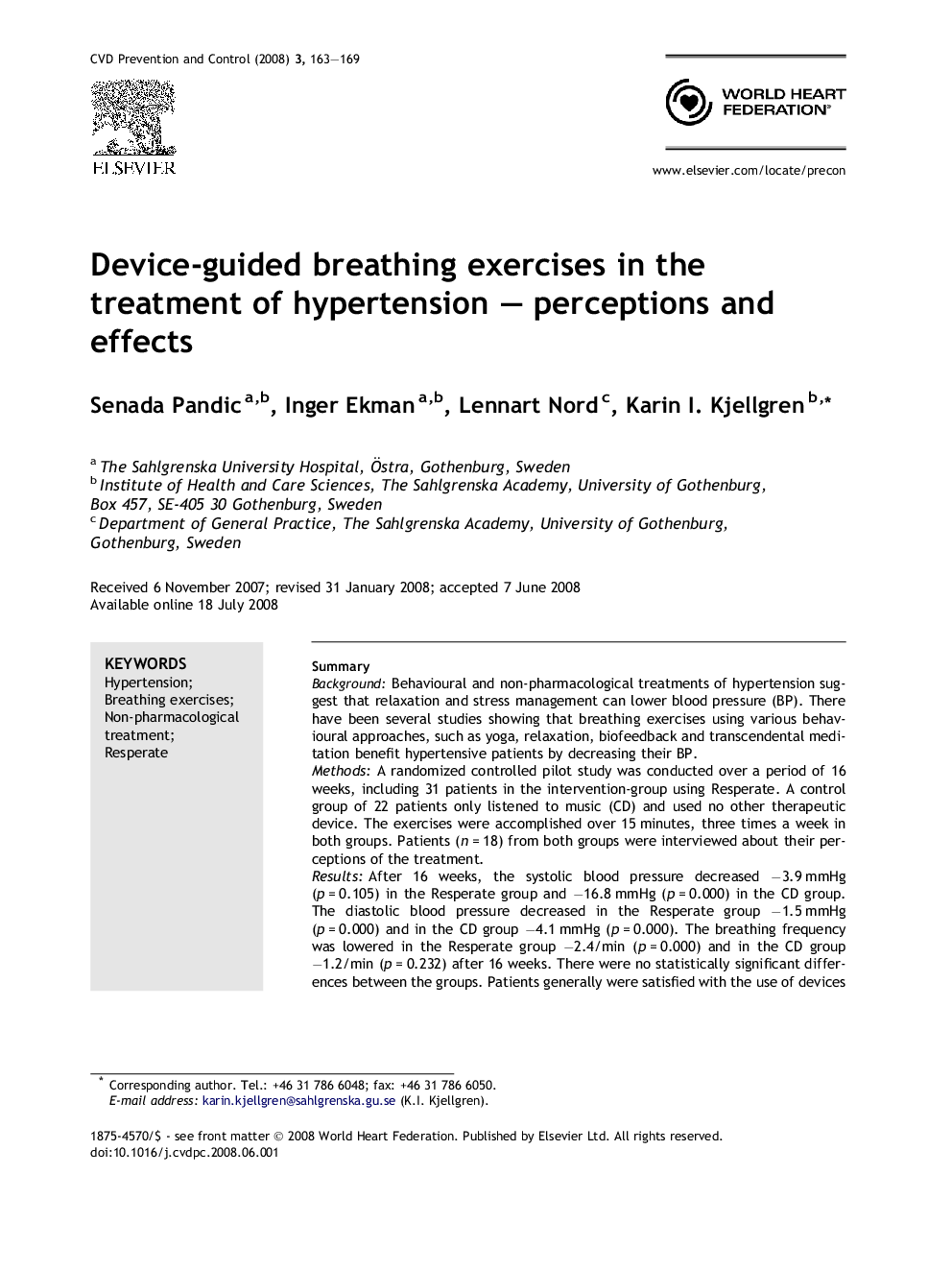| Article ID | Journal | Published Year | Pages | File Type |
|---|---|---|---|---|
| 2909757 | CVD Prevention and Control | 2008 | 7 Pages |
SummaryBackgroundBehavioural and non-pharmacological treatments of hypertension suggest that relaxation and stress management can lower blood pressure (BP). There have been several studies showing that breathing exercises using various behavioural approaches, such as yoga, relaxation, biofeedback and transcendental meditation benefit hypertensive patients by decreasing their BP.MethodsA randomized controlled pilot study was conducted over a period of 16 weeks, including 31 patients in the intervention-group using Resperate. A control group of 22 patients only listened to music (CD) and used no other therapeutic device. The exercises were accomplished over 15 minutes, three times a week in both groups. Patients (n = 18) from both groups were interviewed about their perceptions of the treatment.ResultsAfter 16 weeks, the systolic blood pressure decreased −3.9 mmHg (p = 0.105) in the Resperate group and −16.8 mmHg (p = 0.000) in the CD group. The diastolic blood pressure decreased in the Resperate group −1.5 mmHg (p = 0.000) and in the CD group −4.1 mmHg (p = 0.000). The breathing frequency was lowered in the Resperate group −2.4/min (p = 0.000) and in the CD group −1.2/min (p = 0.232) after 16 weeks. There were no statistically significant differences between the groups. Patients generally were satisfied with the use of devices and seemed to perceive the treatment as a chance to influence their own health.ConclusionsThe use of device guided breathing exercises (Resperate) indicated an antihypertensive effect but only listening to relaxing music also decreased blood pressure.
